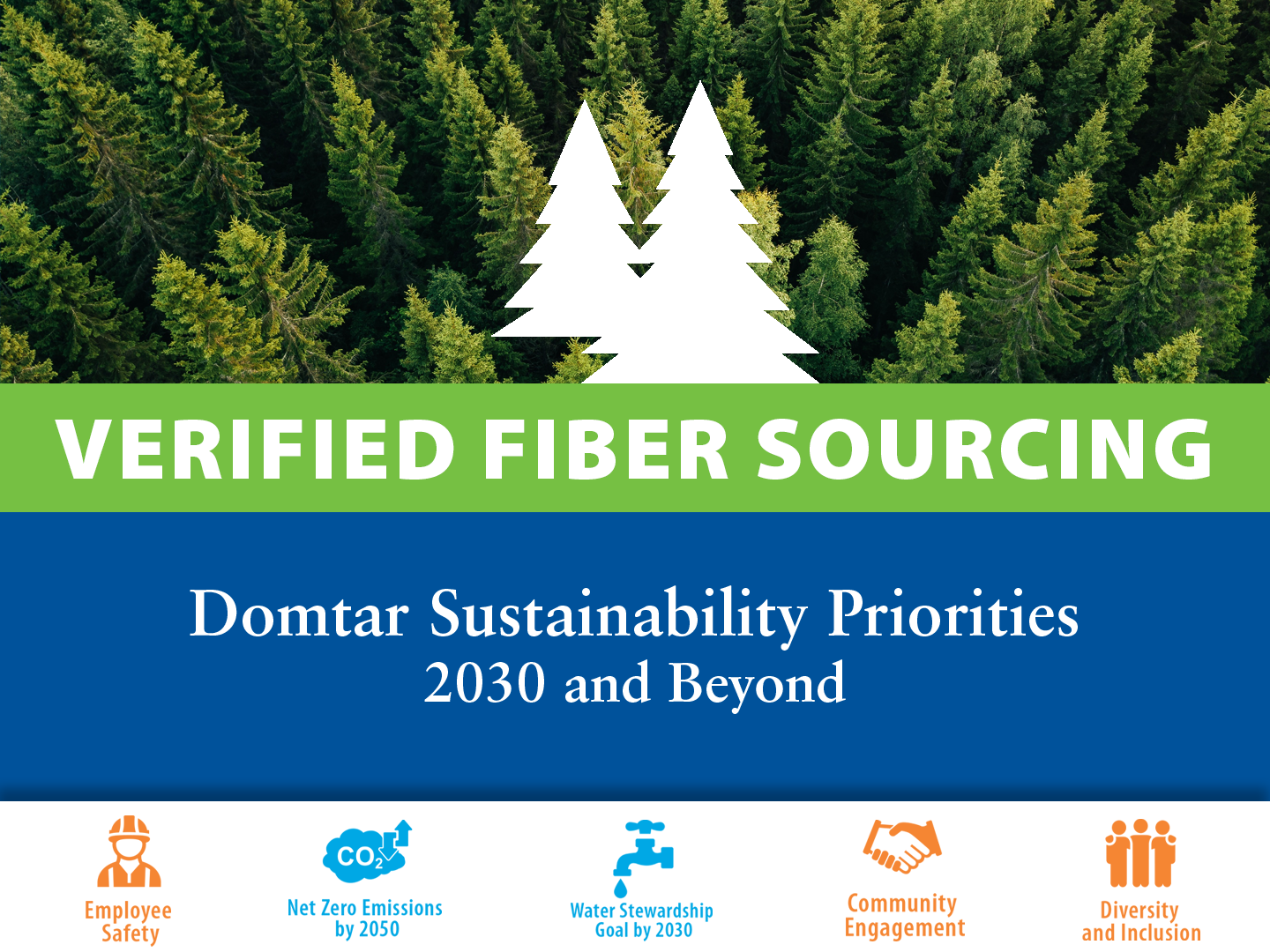Domtar’s sustainability journey begins in the forest, but our work as an industry leader in sustainable forestry continues with our focus on verified fiber sourcing in our sustainability agenda moving toward 2030.
“Our sustainable forestry principles have guided our practices for many years,” says Paige Goff, Domtar’s vice president for sustainability. “We now have advanced technology and other tools to help us be even more effective in applying those principles to our supply chain.”
Building on a long history of responsibility in the forest, Domtar has set two significant goals in the area of verified fiber sourcing:
- We’ll source 100 percent of our fiber from responsibly managed forests.
- We’ll increase our use of recycled fiber and improve the recyclability of our products and packaging.
To achieve the first goal, we’ll support the application of the latest technical and silvicultural research programs, including blockchain networks such as ForesTrust, to provide transparency across the fiber supply chain.
Additionally, we’ll continue to support efforts to increase the availability of certified fiber, with a preference for FSC-certified fiber. We’ll encourage and improve sustainable forest management practices among private landowners through preferential purchasing and helpful collaborations.
We’ll also verify that forests are sustainably managed through third-party certifications or conformance with accepted forest management practices that are science-based and regionally appropriate. And we’ll support programs that promote tree planting and the distribution of seedlings in our communities.
The second goal, related to recycled content and recyclability, is another element of verified fiber sourcing. By making the most of each wood fiber, we can enhance our forest stewardship.
To that end, Domtar will use recycled fiber in our products in the most efficient and environmentally beneficial way possible. The conversion at our Kingsport Mill, moving from making paper to 100-percent recycled containerboard, is a great example of our contribution to a circular economy. Here, we’ll take old cardboard boxes and other recycled fiber to make the materials for new packaging.
We also will invest in infrastructure to make recycling more accessible to residents. It’s one of many ways we are expanding paper’s successful recycling story.
